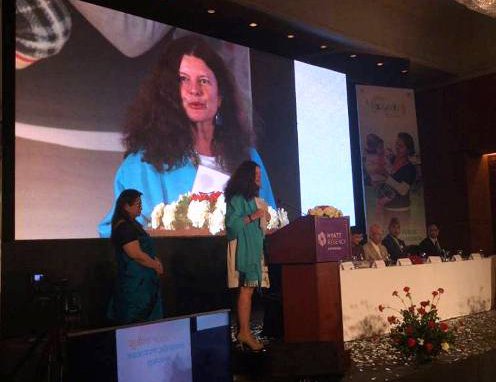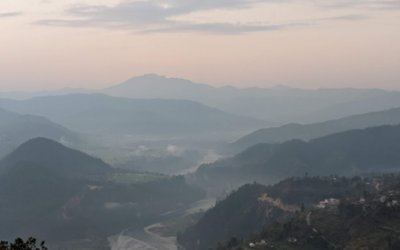
EU Commissioner for Development, Andris Piebalgs recently announced over €6.5 billion in new support for countries and organisations in Asia for the period 2014-2020. The announcement was made during a two-day event to discuss development cooperation with authorities from the countries and regional organisations involved.
Commissioner Piebalgs said: "The EU is committed to cooperation with Asia for the long-run. The future programmes are expected to help achieve the Millennium Development Goals (MDGs) in the region, address climate change, promote energy efficiency, facilitate business and trade through better market access and support regional integration".
While Asian economies have shown remarkable recent growth, poverty is still widespread on the continent, with about 800 million people in the Asia and Pacific region still living in extreme poverty (live on less than $1.25 a day), according to the Asian Development Bank. As most countries in the region are facing challenges due to uneven regional development and increasing income inequality, EU funding for national and regional programmes in Asia for the time period from 2014 – 2020 increased by 20% compared to the financing period 2007 - 2013 (€5.1 billion).
The new funds will address key priorities being discussed with the countries present in the programming seminar in Brussels, as well as with the representatives of the regional organisation the Association of Southeast Asian Nations (ASEAN). Some of these priorities include social protection, better health and education, job creation and better integration of partner countries into regional and world markets.
Funding for EU-Asia cooperation comes from the Development Co-operation Instrument (DCI), which is part of the overall EU budget. 12 countries (Afghanistan, Bangladesh, Bhutan, Cambodia, Laos, Myanmar, Mongolia, Nepal, Pakistan, Philippines, Sri Lanka, and Vietnam) in Asia are eligible for bilateral development programmes.
Some results of EU funded programmes in Asia
The EU currently supports a total of 104 private businesses in 28 provinces in Afghanistan producing a total of 25,000 metric tones of certified wheat seeds each year, thus improving food security in the country. 10,000 metric tonnes were sold and delivered to Afghan farmers for the 2013-14 sowing season. More than 500,000 certified fruit saplings were sold to farmers to replace poor-quality old varieties with high yield and high market-value ones.
Food prices in Bangladesh have risen dramatically since 2007 resulting in serious problems of under-nutrition. In addition, southern Bangladesh was hit by two devastating cyclones in 2007 (Sidr) and 2009 (Aila). In response, Bangladesh’s Government launched a campaign to increase local production. Since 2010, the EU has helped more than 70,000 farmers in Bangladesh and over 3,000 government officials benefitted from hands-on training in crop intensification in 7 coastal districts.
The EU supports SME development in Cambodia through an €8.6 million contribution to a Multi-Donor Trust Fund managed by the International Finance Corporation. With the EU as the main contributor, the programme is improving SME competitiveness in the rice industry. This includes improving rice milling, a crucial step in the production of rice, as well as support to marketing Cambodian rice (which won the ‘Best World Rice’ award in 2012 and 2013). As a result, the value and volume of Cambodian rice exports more than doubled in 2013.
In 2013 an EU-financed sector budget support programme was launched to support community led initiatives and local development in the militancy and flood affected Swat Valley of Khyber Pakhtunkhwa Province in Pakistan. This programme builds on earlier humanitarian and recovery assistance. It contributes to the consolidation of peace and return to normality for the six million inhabitants of a mountainous region that is also the home of the 2013 Sakharov price winner, Malala Yousuf.
In Nepal, 60% of the EU assistance provided between 2007 and 2013 was allocated to the education sector. Major achievements have included an increase in the net enrolment rate for basic education (from 83% to 87.5%), in the Gender Parity Index (from 0.96 to 0.99), in the completion rate in basic education (from 52.7% to 60.8%) and the reduction of the number of out-of-school children (from 800,000 to 445,200) .
- TANAHU HYDROPOWER PROEJCT: A Significant Achievement
- Apr 15, 2024
- AMBASSADOR HANAN GODAR: Sharing Pain With A Nepali Family
- Mar 30, 2024
- VISIT OF KfW AND EIB TO NEPAL : Mission Matters
- Mar 25, 2024
- NEPAL BRITAIN SOCIETY: Pratima Pande's Leadership
- Mar 24, 2024
- NEPAL ARMY DAY: Time To Recall Glory
- Mar 15, 2024
















